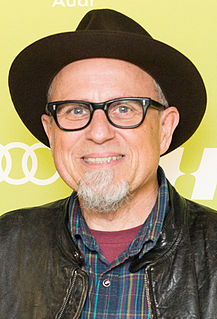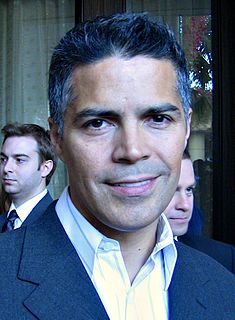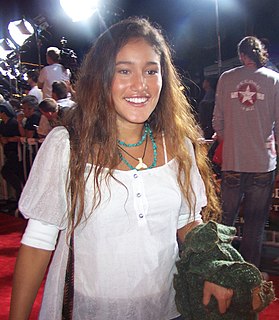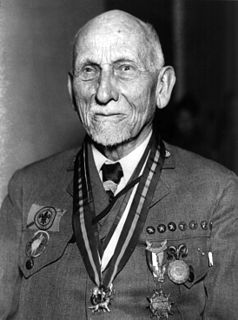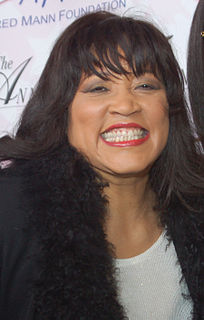A Quote by Brad Pitt
When I was a boy, I would ask about my family history, about my bloodlines. We really didn't know that much. We had a little Indian in us from the Oklahoma Trail of Tears.
Related Quotes
I had an Indian face, but I never saw it as Indian, in part because in America the Indian was dead. The Indian had been killed in cowboy movies, or was playing bingo in Oklahoma. Also, in my middle-class Mexican family indio was a bad word, one my parents shy away from to this day. That's one of the reasons, of course, why I always insist, in my bratty way, on saying, Soy indio! - "I am an Indian!"
It's that weird need to make tragedy about us. When you look at 9/11, there's people who really died and family members who really suffered. And then I would be in Montana, and a guy would go, "You know, I was close to Ground Zero." And it's like, "What are you talking about? You're in Montana." Everybody had to make it about them.
The wilderness is gone, the buckskin man is gone, the painted Indian has hit the trail over the Great Divide, the hardships and privations of pioneer life which did so much to develop sterling manhood are now but a legend in history, and we must depend upon the Boy Scout movement to produce the MEN of the future.
I just remember lot of men running around in little tiny gold shorts! The format - it was kind of hard. You really have to know about pop culture and I'm not really knowledgeable about a lot of those things. I know what I like. They'd ask about Gwyneth Paltrow, and I don't know anything about her, except her mother. I know who her mother is. So you really have to be current and relevant.
I had heard the old Indian legend about the red fern. How a little Indian boy and girl were lost in a blizzard and had frozen to death. In the spring, when they were found, a beautiful red fern had grown up between their two bodies. The story went on to say that only an angel could plant the seeds of a red fern, and that they never died; where one grew, that spot was sacred.
We've been fortunate enough to have a lot of people to ask us to be on their records - so many artists and musicians that we really respect and look up to. And it's been really special. But from our side, there's so much that we in the Little Dragon are still learning about ourselves writing-wise that I guess we haven't had that need.



